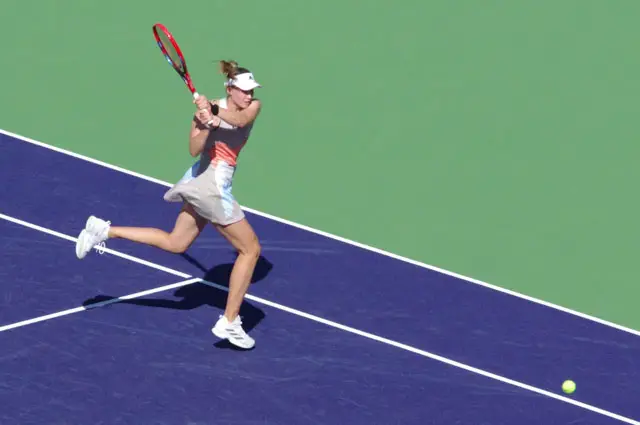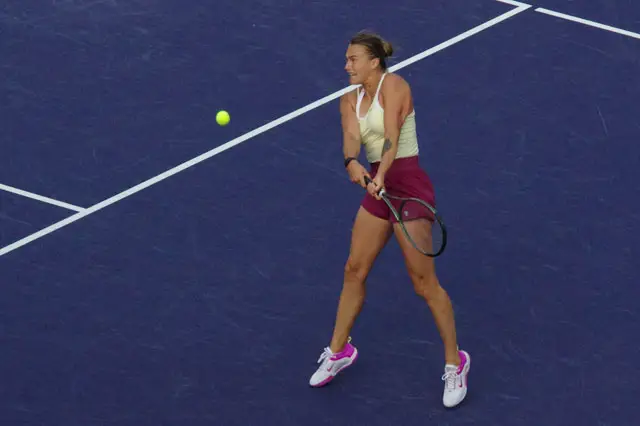For the second time in this short season, Aryna Sabalenka will face Elena Rybakina in the final of a tournament. The Belarusian lifted the winner trophy in Melbourne and leads their head-to-head 4:0, but the result of Sunday’s championship match at the BNP Paribas Open is no forgone conclusion.

Outside of their one-sided official results, the Moscow-born Kazakhstani player did win an encounter last year in the World Tennis League competition. With only three singles titles to her name and none from this year, the world No.10 was the first woman representing Kazakhstan to reach the last four at a WTA 1000 tournament and is now a finalist. The world No.2 Sabalenka, by contrast, has 12 career singles titles, two from this year.

Remarkably, the slow courts do not generally suit either player’s power-hitting style. Reigning Wimbledon champion Rybakina is pleased to see how well she can do here and it is changing her perspective on skills, telling the media, “It’s not my advantage, this surface, because it’s too slow. But I think that in the end it proves to me that I actually can play in such slow conditions. If physically I feel well and I’m healthy, it’s possible to play on any surface for me.”
The tenth-seeded Rybakina spent 9:02 hours on the gritty hard court en route to the final. The longest match was the three-set quarterfinal against the Czech Karolina Muchova, which lasted 2:45 hours.

The second-seeded Sabalenka spent only 5:36 hours on court reaching the final. This was in part due to the third-round withdrawal of Lesia Tsurenko. The Ukrainian player shared on social media that a panic attack triggered by the war and lack of WTA support for players from her home country made it impossible for her to take the court against the Belarusian player.
Asked by media about the renewed flare-ups of locker room tension between Ukrainian, Russian, and Belarusian players, the Australian Open champion opened up maybe more questions than she answered, claiming, “I think with the Tsurenko withdrawal, there was more than panic attack or more than political situation. I think there is something more. I had really tough situation last year with her coach the way he acted toward me. I think that guy put so much pressure on her, and that’s why that happened.” Not detailing the experiences much further, the player from Minsk added, “I’m not able to say that because who’s gonna believe Belarusian girl.”
The 24-year-old will have to put all the politics and tension out of her mind and focus Sunday when she steps on court against a highly-motivated opponent looking for a rematch from January.
Both players barely scratching the early side of their mid-twenties, this budding rivalry has the potential to produce another decade of phenomenal hard-hitting tennis and challenge a potential era of Swiatek dominance. Their contrasting personality styles have won both Grand Slam champions large fan bases to lift them up at matches the world over.
The weather forecast for the time of the BNP Paribas Open women’s final is temperatures around 22C with clouds and light wind. In Indian Wells, this translates to slow balls, but likely the bounce will not be as extreme as in sunny conditions. The wind funneling in the stadium, however, could affect the big serves both players heavily rely on in their aggressive game.




